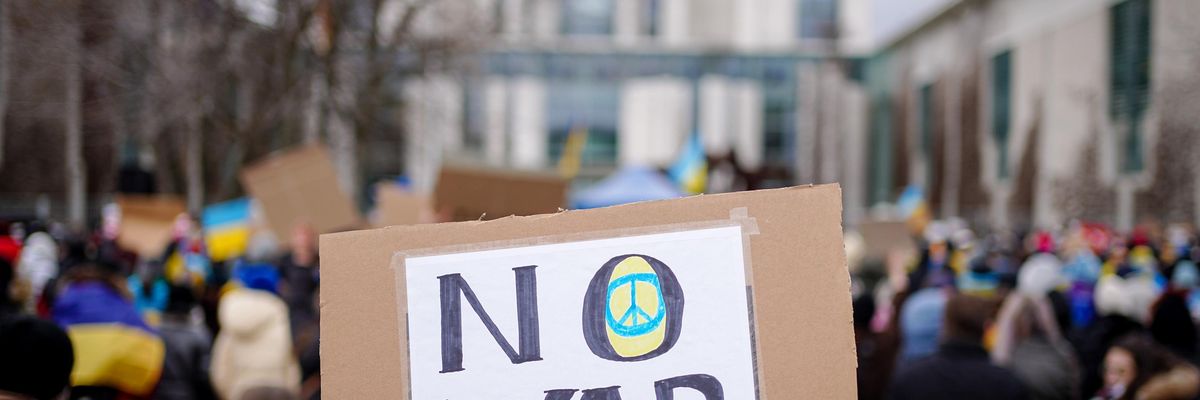The head of the Nobel Peace Prize-winning International Campaign to Abolish Nuclear Weapons on Tuesday sharply criticized people suggesting that use of so-called "smaller" or "tactical" nuclear weapons could be anything other than catastrophic as she reiterated the urgent need for global disarmament.
"Yes, even a 'small' nuclear bomb would be that bad."
ICAN executive director Beatrice Fihn's remarks came in a Twitter thread amid Russia's ongoing assault on Ukraine, which has heightened concerns over both the U.S. and Russian nuclear arsenals, which include lower-yield bombs.
Russian President Vladimir Putin's order last month putting his country's nuclear forces on "special alert" added to such fears. A New York Timesstory this week headlined "The Smaller Bombs That Could Turn Ukraine Into a Nuclear War Zone" also put further focus on how tactical nukes "can feed the illusion of atomic control when in fact their use can suddenly flare into a full-blown nuclear war."
In her post, Fihn took aim at those suggesting that "the use tactical nuclear weapons wouldn't be THAT bad," writing that "today's nuclear weapons are so incredibly large and dangerous that we have a really distorted idea of what a small nuclear weapon is."
"Russian tactical nuclear weapons have an estimated yield of between 10 to 100 kt [kilotons]. Sounds small?" she wrote. "Well, the bomb over Hiroshima was 15kt and it killed 140,000 people by the end of 1945."
Fihn pointed to both the immediate and lasting devastation that resulted from U.S. bombing of Hiroshima, including destroying roughly 70% of all the buildings in the Japanese city and the increase in cancer and miscarriage rates for survivors.
"So yes, even a 'small' nuclear bomb would be that bad," she wrote, and "this is without even going into how it can trigger full scale nuclear war."
Commentators who suggest otherwise, Fihn argued, "are so committed and attached to weapons of mass destruction that they [would] rather convince their own people to be OK with nuclear war than dare to ask the nuclear armed states to disarm."
"They'd literally... rather accept that some people will die from a flaming fireball of 4,000degC or through radioactive rain than have the guts to even say out loud that Russia, the U.S., and China should disarm," she continued. "I can't think of anything more pathetic and cowardly really."
Other disarmament advocates have similarly expressed recent concern about the potential use of nuclear weapons, such as the International Committee of the Red Cross (ICRC), which reiterated the need for a ban on atomic wapons.
Related Content
Any Use of Tactical Nukes Denounced as 'Bat-Sh*t F**king Insane'
Jake Johnson
"We cannot allow a repetition of this dark part of our past," said Helen Durham, ICRC's director of law and policy, referencing the bombing of Hiroshima and Nagasaki, in a statement earlier this month.
"Seldom have collective action and concrete, meaningful steps to free the world of the dark shadow of nuclear weapons been more urgent," she said.
ICAN, a global coalition of non-governmental organizations, won the Nobel Peace Prize in 2017 for its anti-nuclear efforts including work achieving a treaty prohibiting such weapons.
Accepting the prize that year, Fihn said that "we have avoided nuclear war not through prudent leadership but good fortune. Sooner or later, if we fail to act, our luck will run out."
The abolishment of nuclear weapons, she added, "is in our hands."
"The end is inevitable," said Fihn. "But will that end be the end of nuclear weapons or the end of us? We must choose one."

